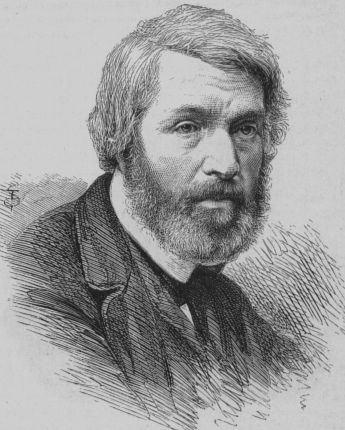Back in 1852, a young man wrote Scottish writer, historian, and educator Thomas Carlyle asking for suggestions on books to read. A small Scottish provincial newspaper published Carlyle’s response. In his response, Carlyle advises the young man to stay away from fluff, study history, and read about ideas he’s curious about. Moreover, Carlyle encourages the young man to not let failures and mistakes get him down, but to keep striving after any goal he may have set. Finally, Carlyle counsels the young man that learning does not come solely from reading books. A man must actually get out and live life if he wishes to obtain a complete education. Great advice 147 years ago; great advice today.
Dear Sir,—Some time ago your letter was delivered me; I take literally the first free half-hour I have had since to write you a word of answer.
It would give me true satisfaction could any advice of mine contribute to forward you in your honourable course of self-improvement, but a long experience has taught me that advice can profit but little—that there is a good reason why advice is so seldom followed; this reason, namely, that it is / so seldom, and can almost never be rightly given. No man knows the state of another; it is always to some more or less imaginary man that the wisest and most honest adviser is speaking.
As to the books which you—whom I know so little of— should read, there is hardly any thing definite that can be said. For one thing, you may be strenuously advised to keep reading. Any good book, any book that is wiser than yourself, will teach you something—a great many things indirectly and directly, if your mind be open to learn. This old counsel of Johnson’s is also good, and universally applicable—”Read the book you do honestly feel a wish and curiosity to read.” The very wish and curiosity indicates that you, then and there, are the person likely to get good of it. “Our wishes are presentiments of our capabilities;” that is a noble saying, of deep encouragement to all true men, applicable to our wishes and efforts in regard to reading as to other things.
Among all the objects that look wonderful and beautiful to you, follow with fresh hope the one which looks wonderfullest, beautifullest. You will gradually find, by various trials (which trials see that you make honest, manful ones, not silly, short, fitful ones), what is for you the wonderfullest, beautifullest—what is your true element and province, and be able to profit by that. True desire, the monition of nature, is much to be attended to. But here, also, you are to discriminate carefully between true desire and false. The medical men tell us we should eat what we truly have an appetite for; but what we only falsely have an appetite for, we should resolutely avoid. It is very true: and flimsy desultory readers, who fly from foolish book to foolish book, and get good of none, and mischief of all—are not these as foolish, unhealthy eaters, who mistake their superficial false desire after spiceries and confectioneries for their real appetite, of which even they are not destitute, though it lies far deeper, far quieter, after solid nutritive food? With these illustrations, I will recommend Johnson’s advice to you.
Another thing, and only one other, I will say. All books are properly the record of the history of past men—what thoughts past men had in them—what actions past men did; the summary of all books whatsoever lies there. It is on this ground that the class of books specifically named History can be safely recommended as the basis of all study of books, the preliminary to all right and full understanding of any thing we can expect to find in books. Past history, and especially the past history of one’s own native country, every body may be advised to begin with that. Let him study that faithfully; innumerable inquiries will branch out from it; he has a broad beaten highway, from which all the country is more or less visible; there traveling, let him choose where he will dwell.
Neither let mistakes and wrong directions—of which every man, in his studies and elsewhere, falls into many—discourage you. There is precious instruction to be got by finding that we are wrong. Let a man try faithfully, manfully, to be right, he will grow daily more and more right. It is, at bottom, the condition on which all men have to cultivate themselves. Our very walking is an incessant falling—a falling and a catching of ourselves before we come actually to the pavement!—it is emblematic of all things a man does.
In conclusion, I will remind you that it is not books alone, or by books chiefly, that a man becomes in all points a man. Study to do faithfully whatsoever thing in your actual situation, there and now, you find either expressly or tacitly laid to your charge; that is your post; stand in it like a true soldier. Silently devour the many chagrins of it, as all human situations have many; and see you aim not to quit it without doing all that it, at least, required of you. A man perfects himself by work much more than by reading. They are a growing kind of men that can wisely combine the two things—wisely, valiantly, can do what is laid to their hand in their present sphere, and prepare themselves withtal for doing other wider things, if such lie before them.
With many good wishes and encouragements, I remain, yours sincerely,
Thomas Carlyle
Tags: Manvotionals

